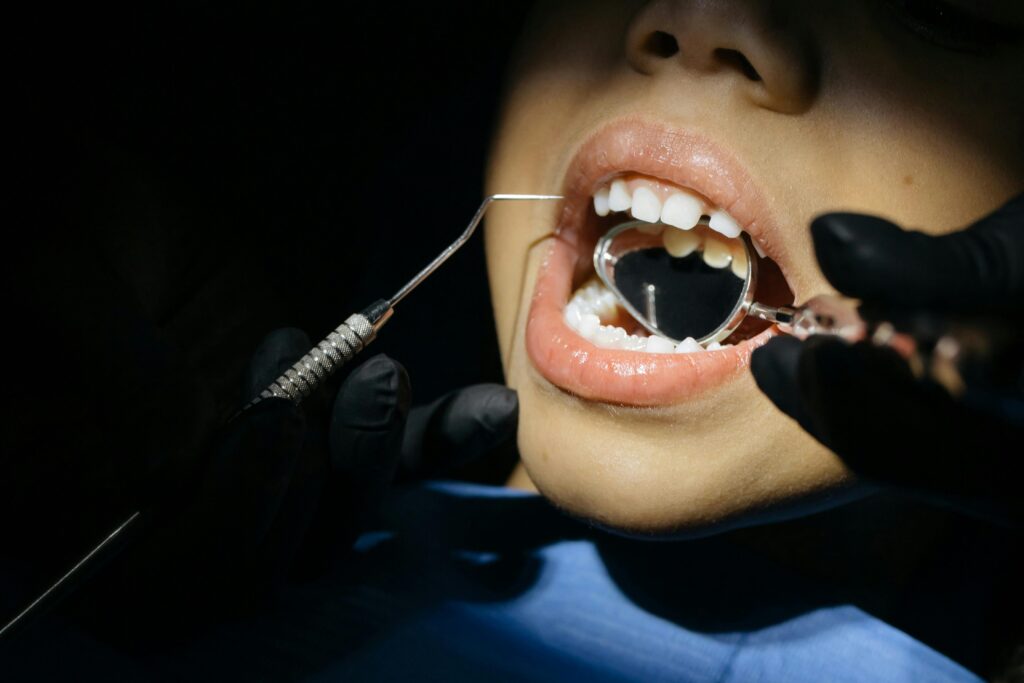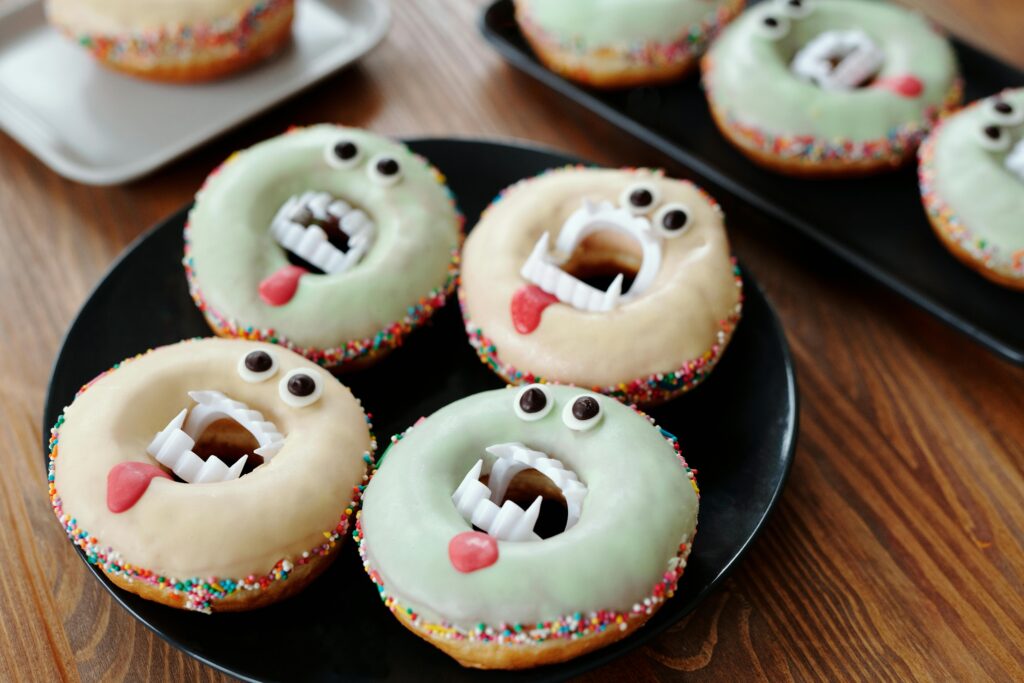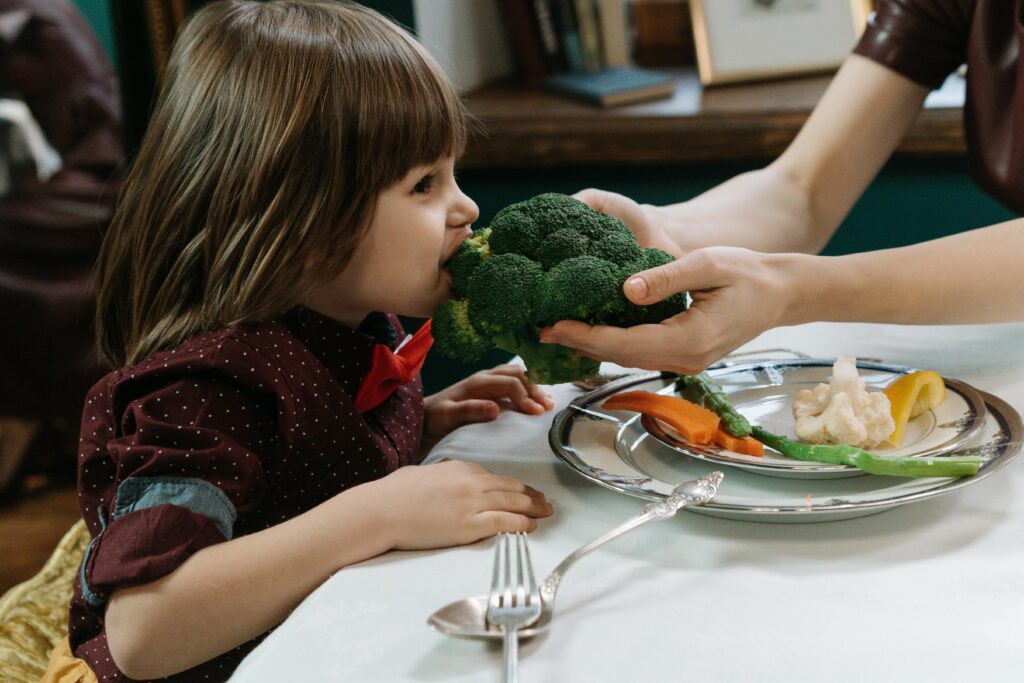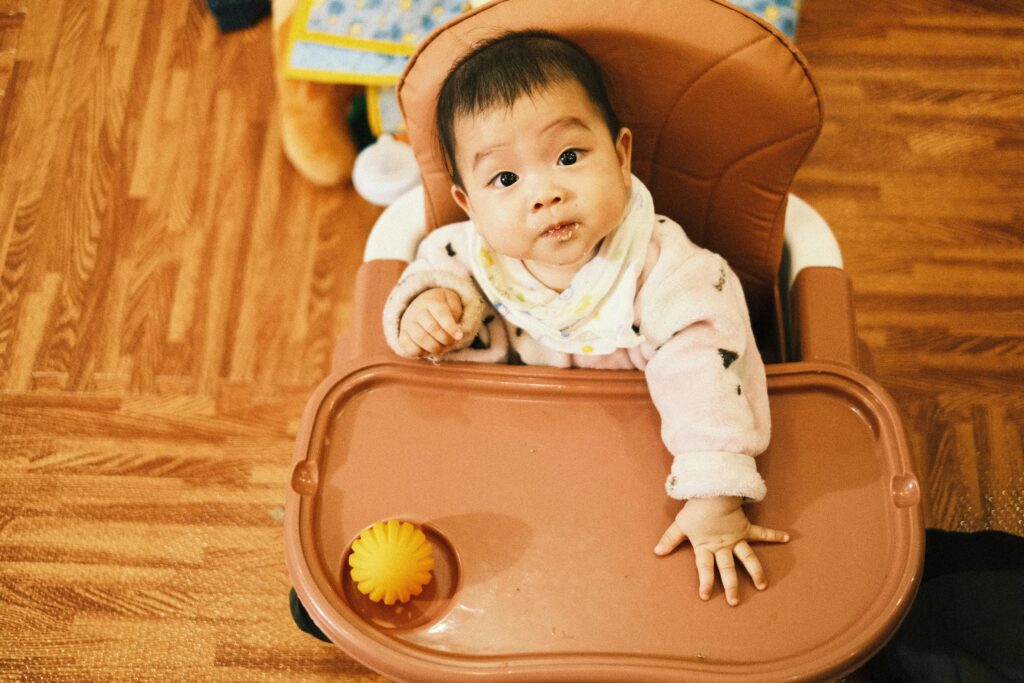For parents, kids toothaches at night can be terrifying. A good night’s sleep and less pain can be maintained by knowing the causes, symptoms, and practical solutions. Does Your Child Have Tooth Pain at Night?
This blog will cover all the reasons for children’s tooth discomfort at night, providing information on its causes, at-home treatments, when to get dental treatment and preventive measures.
Causes of tooth pain in children:
Different factors can cause tooth pain in children, often resulting in severe pain. Several children complain that my teeth hurt when we wake up. Common causes that result in waking up with tooth pain are the following:
Dental decay
The most common cause of dental pain in children is tooth decay. Cavities develop when oral bacteria create acids that break down tooth enamel. Inflammation and intense pain may result from decay that spreads to the tooth’s inner core if treatment is not received.
Teething
As new teeth grow through the gums, teething can cause discomfort for younger kids. The symptoms of this procedure include swollen gums and excessive drooling, which can also cause irritability.
Infection
Pain from dental infections or abscesses can be unbearable, and it usually worsens at night. Fever, poor taste in the mouth, and swelling around the infected tooth are possible symptoms.
The emergence of new teeth
New teeth can cause discomfort by irritating the tissues around them. This is especially prevalent between the ages of 6 and 12, when permanent teeth form.
Trauma or Injury
Accidents or falls can injure the teeth or gums, causing discomfort that may increase at night when lying down increases blood flow. It is important to keep a close eye on any injuries.
Other Causes
- Sinus Problems: Pain that refers to the upper teeth may sometimes be caused by sinus infections.
- Bruxism: Grinding your teeth as you sleep can cause pain and sensitivity in your teeth.
- Orthodontic Issues: discomfort may also result from jaw issues or tooth misalignment.
Children mostly ask questions like, Why does my toothache hurt more at night? For parents who are interested in properly treating their child’s tooth pain at night, it is important to identify these possible causes.

Symptoms of tooth pain
| Symptoms | Description |
| Avoiding Food | Poor eating patterns, such as avoiding food as it hurts to chew. |
| Fever | Tooth pain may be related to a high temperature in the body, which could be a sign of an infection. |
| Bad Breath | Continuous bad breath could be a sign of cavities or other dental problems. |
| General Malaise | A general feeling of exhaustion or sickness that can come with dental pain. |
| Touching or Rubbing Mouth | Children tend to show pain by touching the area around their ears or rubbing their jawline. |
| Difficulty Sleeping | Pain causes difficulty falling asleep or many wake-ups during the night. |
| Crying or Whining | Frequent crying or whining is a sign of discomfort, especially at night. |
| Tooth Sensitivity | Increased sensitivity to things that are hot, cold, or sweet makes eating certain meals painful. |
| Swelling or Redness | Visible swelling surrounding the infected tooth or gums may be a symptom of an infection. |
The primary symptoms of tooth discomfort in kids are listed in this table to help parents identify possible problems that could need dental care.
Child Tooth Pain at Night Remedies
Parents can take a few steps to give their children immediate relief when they complain of tooth pain at night:
Remain calm and comfort your child.
When their child is upset, parents must keep their calm. You may reduce your child’s fear and help them with the discussion by telling them that you will support them through the dental pain they feel.
Look At Their Mouth
Check for clear signs of infection or damage. Check for wounds, edema, or foreign objects stuck in the teeth. If food particles cause discomfort for you, flossing softly could help get rid of them.
Prescribed Painkillers
Try giving a suitable dosage of painkillers available without a prescription, such as acetaminophen or ibuprofen, to your child for immediate relief of nighttime toothache. Always follow the dosage recommendations depending on the patient’s weight and age for toothache only at night.
Raise Their Head
Encouraging your child to sleep with their head raised on pillows will help relieve pressure and pain of teeth hurt at night in the affected area by lowering blood flow. As many children feel tooth pain when lying down,
When to Reach Out for Professional Advice
Many tooth pain cases can be treated at home. However, in some cases, urgent dental care is necessary.
- Constant Pain: It’s important to see a pediatric dentist for a diagnosis and treatment plan if your child’s toothache doesn’t go away after trying some home treatments for more than a day or two.
- Infection Symptoms: Seek emergency dental care if you observe pus, fever, or swelling around the affected area, as these could be signs of an infection that has to be treated right away.
- Severe Trauma: Take your child to an emergency dental clinic right away if they have been hurt and have a broken tooth or are bleeding excessively from their mouth.
- Behavior Changes: Your child may have a more serious problem that needs to be examined by a professional if they show strange behavior, such as serious irritability or tiredness, combined with tooth pain.

Preventive Measures
Regular dental checkups and maintaining proper oral hygiene practices are important to preventing tooth pain.
Routine dental checkups
Schedule your child’s regular dental checkup every six months to keep an eye on their oral health and detect any possible problems early. During these appointments, dentists can apply preventive coatings and fluoride treatments.
Nutritious Food Selections
Lowering intake of sugary foods and drinks can help prevent tooth decay. Promote healthy options less prone to damaging teeth, such as fruits and vegetables. Strong teeth are supported by foods high in calcium, such as milk or yogurt.
Use Healthy Dental Care
Teach your children to clean their teeth twice a day with toothpaste and floss regularly. Watch younger children until they understand the right way to brush. To make brushing more fun, use colorful toothbrushes or flavored toothpaste.
Use Safety Equipment
Make sure your child wears proper safety devices, such as mouthguards, if they play sports or engage in activities that have a risk of dental damage, such as soccer or skateboarding.
Teach Children About Tooth-Harming Habits
Tell your child to stay away from doing actions that can damage their teeth, such as chewing on hard things (like ice), opening packages with their teeth, or consuming too many sugary drinks.
Conclusion: Does Your Child Have Tooth Pain at Night?
Children often suffer tooth pain at night, which may cause problems with sleep and irritate both parents and children. Parents can take precautions to reduce discomfort through immediate treatments and focus preventive measures for long-term oral health by being aware of the possible causes and symptoms of tooth pain.
Having professional dental treatment is important for your child’s comfort and health if they have ongoing tooth pain or show symptoms of infection. Parents can help protect their children’s smiles from future dental problems by prioritizing regular dental checkups and proper oral hygiene habits.













